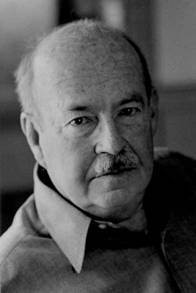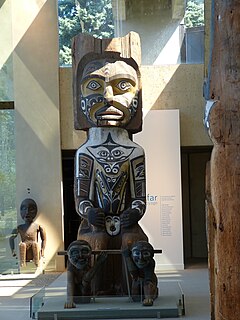Related Research Articles

Talcott Parsons was an American sociologist of the classical tradition, best known for his social action theory and structural functionalism. Parsons is considered one of the most influential figures in sociology in the 20th century. After earning a PhD in economics, he served on the faculty at Harvard University from 1927 to 1929. In 1930, he was among the first professors in its new sociology department. Later, he was instrumental in the establishment of the Department of Social Relations at Harvard.

Ethnography is a branch of anthropology and the systematic study of individual cultures. Ethnography explores cultural phenomena from the point of view of the subject of the study. Ethnography is also a type of social research that involves examining the behaviour of the participants in a given social situation and understanding the group members' own interpretation of such behaviour.

Clifford James Geertz was an American literary critic, anthropologist who is remembered mostly for his strong support for and influence on the practice of study in cultural symbols and who was considered "for three decades... the single most influential cultural anthropologist in the United States." He served until his death as professor emeritus at the Institute for Advanced Study, Princeton.

A cultural system is the interaction of different elements in culture. While a cultural system is very different from a social system, sometimes both systems together are referred to as the sociocultural system.
Symbolic anthropology or, more broadly, symbolic and interpretive anthropology, is the study of cultural symbols and how those symbols can be used to gain a better understanding of a particular society. According to Clifford Geertz, "[b]elieving, with Max Weber, that man is an animal suspended in webs of significance he himself has spun, I take culture to be those webs, and the analysis of it to be therefore not an experimental science in search of law but an interpretive one in search of meaning". In theory, symbolic anthropology assumes that culture lies within the basis of the individuals’ interpretation of their surrounding environment, and that it does not in fact exist beyond the individuals themselves. Furthermore, the meaning assigned to people's behavior is molded by their culturally established symbols. Symbolic anthropology aims to thoroughly understand the way meanings are assigned by individuals to certain things, leading then to a cultural expression. There are two majorly recognized approaches to the interpretation of symbolic anthropology, the interpretive approach, and the symbolic approach. Both approaches are products of different figures, Clifford Geertz (interpretive) and Victor Turner (symbolic). There is also another key figure in symbolic anthropology, David M. Schneider, who does not particularly fall into either of the schools of thought. Symbolic anthropology follows a literary basis instead of an empirical one meaning there is less of a concern with objects of science such as mathematics or logic, instead of focusing on tools like psychology and literature. That is not to say fieldwork is not done in symbolic anthropology, but the research interpretation is assessed in a more ideological basis.

Harrison Colyar White is the emeritus Giddings Professor of Sociology at Columbia University. White played an influential role in the “Harvard Revolution” in social networks and the New York School of relational sociology. He is credited with the development of a number of mathematical models of social structure including vacancy chains and blockmodels. He has been a leader of a revolution in sociology that is still in process, using models of social structure that are based on patterns of relations instead of the attributes and attitudes of individuals.
Paul Willis is a British social scientist known for his work in sociology and cultural studies. Paul Willis' work is widely read in the fields of sociology, anthropology, and education, his work emphasizing consumer culture, socialization, music, and popular culture. He was born in Wolverhampton and received his education at the University of Cambridge and at the University of Birmingham. He worked at Centre for Contemporary Cultural Studies and subsequently at the University of Wolverhampton. He was a Professor of Social/Cultural Ethnography at Keele University. In the autumn of 2010, he left Keele University and is now a professor at Princeton University.

Dan Sperber is a French social and cognitive scientist and philosopher. His most influential work has been in the fields of cognitive anthropology, linguistic pragmatics, psychology of reasoning, and philosophy of the social sciences. He has developed: an approach to cultural evolution known as the epidemiology of representations or cultural attraction theory as part of a naturalistic reconceptualization of the social; relevance theory; the argumentative theory of reasoning. Sperber formerly Directeur de Recherche at the Centre National de la Recherche Scientifique is Professor in the Departments of Cognitive Science and of Philosophy at the Central European University in Budapest.
Scott Lash is a professor of sociology and cultural studies at Goldsmiths, University of London. Lash obtained a BSc in Psychology from the University of Michigan, an MA in Sociology from Northwestern University, and a PhD from the London School of Economics (1980). Lash began his teaching career as a lecturer at Lancaster University and became a professor in 1993. He moved to London in 1998 to take up his present post as Director for the Centre for Cultural Studies and Professor of Sociology at Goldsmiths College.

Ralph Wild Larkin is an American sociologist and research consultant. He is the author of Suburban Youth in Cultural Crisis (1979), Beyond Revolution: A New Theory of Social Movements (1986), and Comprehending Columbine (2007). He obtained his bachelor's degree from the University of California, Santa Barbara and received a master's degree in education from California State University at Northridge.
William H. Sewell Jr. is an American academic. He is the Frank P. Hixon Distinguished Service Professor Emeritus of History and Political Science at the University of Chicago.

Sociological and anthropological theories about religion generally attempt to explain the origin and function of religion. These theories define what they present as universal characteristics of religious belief and practice.

Sociology is a social science that focuses on society, human social behaviour, patterns of social relationships, social interaction, and aspects of culture associated with everyday life. It uses various methods of empirical investigation and critical analysis to develop a body of knowledge about social order and social change. While some sociologists conduct research that may be applied directly to social policy and welfare, others focus primarily on refining the theoretical understanding of social processes. Subject matter can range from micro-level analyses of society to macro-level analyses.
Jeffrey Charles Alexander is an American sociologist, and one of the world's leading social theorists. He is the founding figure in the school of cultural sociology he refers to as the "strong program".

Cultural criminology is a subfield in the study of crime that focuses on the ways in which the "dynamics of meaning underpin every process in criminal justice, including the definition of crime itself." In other words, cultural criminology seeks to understand crime through the context of culture and cultural processes. Rather than representing a conclusive paradigm per se, this particular form of criminological analysis interweaves a broad range of perspectives that share a sensitivity to “image, meaning, and representation” to evaluate the convergence of cultural and criminal processes.

Ingo Mörth is an Austrian sociologist.
Omar Lizardo is a sociologist, LeRoy Neiman Term Chair Professor of Sociology at the University of California, Los Angeles, formerly Professor of Sociology at the University of Notre Dame (2006-2018), and the former co-editor (2016-2020), with Rory M. McVeigh and Sarah Mustillo, of the American Sociological Review, the flagship journal for the American Sociological Association. Starting in 2020, Lizardo became a member of the board of reviewing editors of the journal Science. The website academic influence ranks Lizardo as the most influential sociologist from the period 2010–2020. According to one commentator, he "has a history of grappling with important ideas in an innovative and insightful fashion" and is a widely cited author in numerous sub-fields of sociology. He is specifically known for his work at the intersection of cognitive science and sociology of culture, but also social networks, organizational studies, and sociological theory. He is a former contributor to the popular sociology group blog, orgtheory.net. and one of the co-founders of the group blog culturecog.
Mustafa Emirbayer is an American sociologist and professor of sociology at University of Wisconsin-Madison. He is known for his theoretical contributions to social network analysis, and is "one of the most vocal advocates of the relational approach in the social sciences." In 2009 he won the Lewis A. Coser Award for Theoretical Agenda-Setting from the American Sociological Association.
Ann Mische is an American sociologist and Associate Professor of Sociology at the University of Notre Dame and a Professor of Peace Studies at the Kroc Institute for International Peace Studies. She is particularly known for her contributions to political sociology, relational sociology, social networks, and contentious politics.

Relational sociology is a collection of sociological theories that emphasize relationalism over substantivalism in explanations and interpretations of social phenomena and is most directly connected to the work of Harrison White and Charles Tilly in the United States and Pierpaolo Donati and Nick Crossley in Europe.
References
- ↑ "With sadness we inform you of the recent death of John Mohr".
- ↑ "John W. Mohr".
- ↑ "John Mohr | Sociology". www.soc.ucsb.edu. Retrieved 18 July 2014.
- ↑ Mische, Ann. "Relational sociology, culture, and agency." The Sage handbook of social network analysis (2011): 80-97.
- ↑ "Mohr's CV" (PDF). Retrieved 18 July 2014.
- ↑ "Section on Culture Past Award Recipients". 2011-03-08.
- ↑ "Site Not Found". Archived from the original on 2014-07-25. Retrieved 2014-07-18.
- ↑ "NSSR Sociology Lecture Series: John Mohr".
- ↑ http://aminghaziani.net/wp-content/uploads/2012/10/Measuring-Culture-Conference-Program-Web-Version.pdf
- ↑ "Theory and Society, Volume 43, Issue 3 - Springer".
- ↑ Mohr, John W.; Bail, Christopher A.; Frye, Margaret; Lena, Jennifer C.; Lizardo, Omar; McDonnell, Terence E.; Mische, Ann; Tavory, Iddo; Wherry, Frederick F. (August 2020). Measuring Culture. Columbia University Press. ISBN 978-0-231-54258-6.